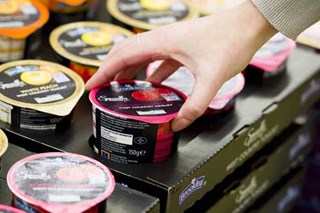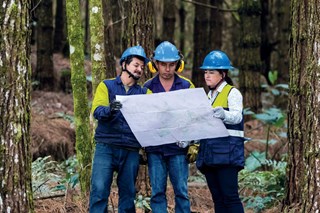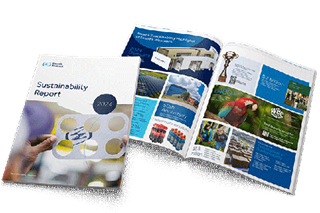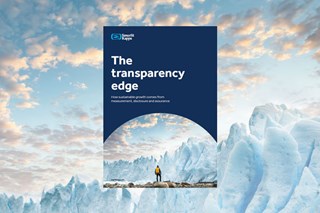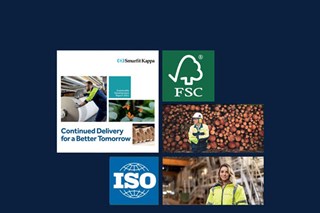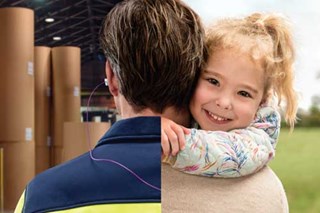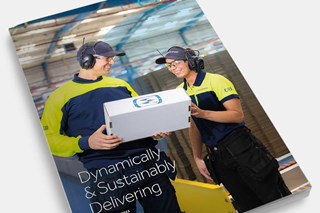It is time for companies to see transparency as a tool — not a trap
As businesses try to reduce their environmental impact, many are recognising the power of transparency that is built on credible data.
In Europe, transparency is no longer a choice. The EU’s new Corporate Sustainability Reporting Directive requires certain companies — about 50,000 of them — to publish regular reports on their environmental and social impact. The legislation is a step towards a culture of transparency based on credible, comparable data on sustainability.
For some businesses, transparency is more than mandatory. They understand that it is essential for improving performance, building consumer trust and engaging their partners in the shift to more sustainable economic models.
Data is paramount
New research commissioned by Smurfit Kappa and conducted by FT Longitude finds that sustainability is reshaping how the majority of businesses are measuring their financial performance. And yet it also finds that many businesses’ efforts are hampered by inconsistent data and reporting standards.
In the survey, 61 per cent of European respondents say they have complete transparency on sustainability decisions. However, 31 per cent say that inconsistent access to data is damaging their credibility.
That is a major problem, because sustainability is increasingly important to customers, and businesses will only win their trust with clear data.
61 per cent of European businesses say they have complete transparency on sustainability decisions
“You do what you say, and you say what you do,” says Nina Hajikhanian, director, DTC EMEA at clothing company Patagonia. “You get the trust of the customer because they can see you.”
No action without accountability
Assured reporting is an important part of transparency. Research shows that almost six in 10 organisations believe that other businesses exaggerate their sustainability, and 11 per cent admit that they may do this themselves.
The EU’s new legislation will counter this by making independent third-party assurance mandatory for many businesses, which should also help to improve the quality of reported data.
“You do what you say, and you say what you do. It is important we hold ourselves accountable.”
Patagonia’s clothing is made using certified fair trade and sustainable standards. The company regularly produces detailed data so that key business decisions can take account of environmental factors.
“It is important we hold ourselves accountable,” says Hajikhanian. “We have an environmental profit and loss calculation which is similar to a P&L but calculates carbon water and waste costs on every item. We get transparency on the product and we can cut products that do not meet our standards.”
The next challenge is the supply chain
Of course, to tap into the power of transparency, companies must first build the capability to generate and report relevant data. That can be a significant challenge, especially when they have complex supply chains.
Smurfit Kappa’s research suggests that many businesses are struggling in this area. European respondents say inconsistent data access and poor supply chain transparency are the top barriers to improving credibility on sustainability initiatives.
Supply chain data in particular is critical to mitigating Scope 3 emissions across the value chain, which is why Smurfit Kappa gathers sustainability data at every stage of the product journey.
For European businesses, inconsistent data access and poor supply chain transparency are the top barriers to improving credibility on sustainability initiatives
“We now have a database of over 100,000 supply chains, where we can see the average transport distance, the carbon footprint, the load efficiency and so on,” explains Arco Berkenbosch, vice president of innovation and development at Smurfit Kappa.
That granular detail enables the company to identify ways to reduce its own emissions while also helping suppliers and customers to reduce theirs. “That’s just one example of the power of big data,” says Berkenbosch.
Data disclosure gets results
Colgate-Palmolive is another company that is using its supply chain data — this time, to reduce plastic use and increase packaging sustainability.
To reach this stage, firms have to be able to answer questions about the materials they source, says Adrien Sen, the consumer products company’s packaging sustainability innovation manager. “Where does the plastic you’re using come from? Is your recycled plastic really post-consumer recycled plastic? And so on.”
It has not always been possible to answer these questions, but increased collaboration between companies is making supply chains more transparent than ever.
By 2025, Colgate-Palmolive plans to make all of its packaging recyclable, reusable or compostable. It aims to reduce virgin plastic by a third and ensure that any new packaging uses at least 25 per cent post-consumer recycled plastic.
As European businesses confront complex sustainability challenges, robust data will determine their success. In terms of winning customers’ trust, transparency gives companies the edge.


